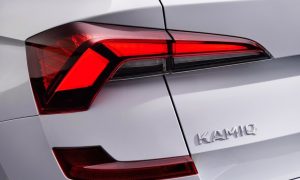On the road price: £10,995 – £15,495
For: Stylish looks, good quality and finish, assured handling
Against: Cramped rear and boot, steering short on feel, firm ride
Driving
The Bravo is offered with an innovative 1.4-litre T-Jet turbocharged engine, which combines small-capacity economy with large-engine performance. There are more conventional (and cheaper) petrol units also on offer. But it’s the 1.9-litre MultiJet turbodiesel that we got our hands on first – and it’s a real gem, in both the 150bhp guise we tested, and cheaper 120bhp form. It’s quiet on start-up and there’s minimal vibration, but it has plenty of punch. Power delivery is smooth and predictable, and it proved quick both at the test track and through the gears. Ride quality is good too, albeit firm and slightly crashy on rough surfaces, but the trade-off is decent body control through bends. The Bravo is agile, with plenty of grip, and turns in well. It’s just a shame the package is spoiled by the overly assisted Dualdrive electric power steering, which is too light and lacks feel. Ultimately, this saps any real sense of driver involvement, and leaves the Fiat feeling disappointingly numb.
Marketplace
Bosses admit the Bravo is a crucial car for Fiat. Ultimately, the firm wants to rival Toyota and VW for quality, while also building on its own strengths – namely, style and driver enjoyment. First impressions are positive. Viewed in profile, it has an athletic wedge shape, thanks to the rising waistline and arching roof – it’s aggressive and is helped by the sweeping headlights and Maserati-style grille, while the rear, with its characteristic tail lights, completes the look. From this angle, it also has echoes of the previous Bravo, axed in 2001. Style is now a crucial factor in most buyers’ vehicle choice, and the Bravo certainly ticks this box. Available only as a five-door, it replaces the disappointing Stilo, and aims to meet the benchmark set by the likes of the VW Golf, Ford Focus, Vauxhall Astra and Kia cee’d. Trims include Active, Dynamic, Active Sport and range-topping Sport.
Owning
There has always been a question mark when it comes to quality with Fiat – particularly in terms of the cabin. We are pleased to report that the company has obviously been working hard to rectify this. Bland and scratchy plastics are replaced by a pleasant combination of soft-touch materials and well damped switchgear. Look closely and you will find areas where the plastics feel average. Still, it’s easily the best offering from Fiat to date. Everything seems fairly robust and well finished. The dash layout is good, the heater and stereo controls logical, while the deep-set instrument dials add an upmarket touch. It’s a shame, then, that the driving position is set a tad too high – the seat could do with adjusting lower, and also lacks under-thigh support. Rear passenger space isn’t great, either – it’s quite cramped in the back, and headroom is limited, too. Hopefully, retained values will be much better than the Stilo’s disastrous 29 per cent figures, though we can’t help but think the Stilo looks a little expensive against some of its key rivals.
Previous article
Alfa prices the 8C Competizione at €159k


